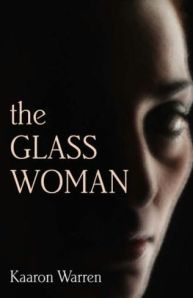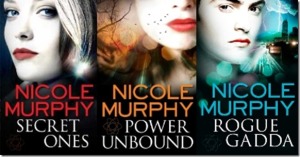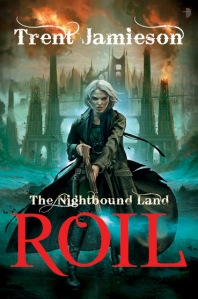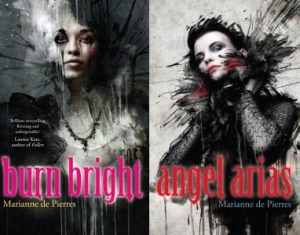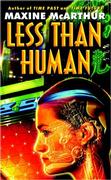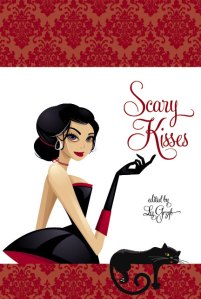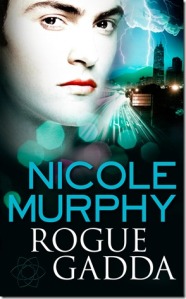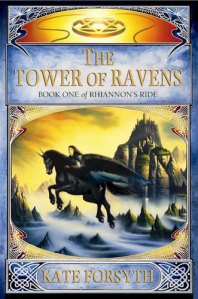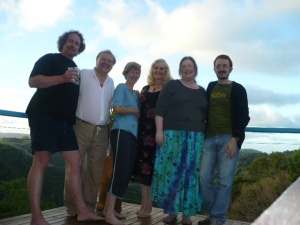As the next of my series featuring fantastic female fantasy authors (see disclaimer) I’ve invited the talented Kylie Chan to drop by.
Watch out for the give-away question at the end of the interview.
Q: Your first book White Tiger came out in 2006. Your books have been on the best seller lists consistently since then. Why do you think they appeal so much to your readers?
 Mainly, I think, because of the novelty. The Chinese mythology is a completely new set of stories to explore, with wonderful – and truly weird – characters. Many people have heard of the Monkey King but the overall philosophy and the way it fits together is fascinating. I’ve also tried to make the books a simple, straightforward and action-packed read, always fresh and never boring. It seems to have worked!
Mainly, I think, because of the novelty. The Chinese mythology is a completely new set of stories to explore, with wonderful – and truly weird – characters. Many people have heard of the Monkey King but the overall philosophy and the way it fits together is fascinating. I’ve also tried to make the books a simple, straightforward and action-packed read, always fresh and never boring. It seems to have worked!
Q: There were three books in the Dark Heavens series, White Tiger
Red Phoenix, Blue Dragon’, and another three in the Journey to Wudang sequel series, Earth to Hell, Hell to Heaven, Heaven to Wudang. When do you sleep?
What is this ‘sleep’ that you speak of? I am a mother. We learn the minute our first child is born that sleep is something that is precious and fleeting and truly wonderful. It doesn’t help my quest for sleep that I work best between midnight and three am – I tried to force-write book four, ‘Earth To Hell’, during the day and failed miserably – and that I have to get up at seven to get my daughter off to school. Unsurprisingly I’m ferociously productive during school holidays, when I can stay up as late as I like and sleep the morning away. This is a good thing, as I detest mornings anyway.
Q: The second series open 8 years after the first series finishes. You’ve been writing these characters since 2004 (?) now. Do they become like old friends?
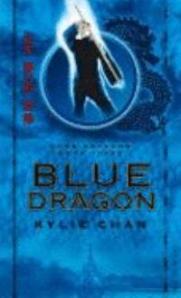 Yes, they have become like old friends. Is there a line you cross? From where the characters are talking to each other, to where they are talking to you, and the men in white coats come to take you away? Maybe to be successful as an author you have to pass that line anyway. I know many of my family and friends suffer me with bemused tolerance and believe that I should have been carted off to the madhouse a long time ago. But then they all show up at my house and it’s a madhouse anyway.
Yes, they have become like old friends. Is there a line you cross? From where the characters are talking to each other, to where they are talking to you, and the men in white coats come to take you away? Maybe to be successful as an author you have to pass that line anyway. I know many of my family and friends suffer me with bemused tolerance and believe that I should have been carted off to the madhouse a long time ago. But then they all show up at my house and it’s a madhouse anyway.
Q: In a post on the ROR site you talked about living in a different culture (you married a Chinese national and lived in Hong Kong for ten years) and how this gave you insight for your writing. Was it a bit of a culture shock to come back to Australia?
I can remember the first time I came back after being a while in Hong Kong – I was delighted at the signs. They were all in English! I was so accustomed to seeing signs in Chinese, or both languages, it was a cultural jolt.
Coming back for good has had some difficulties. There are a few really authentic provincial Chinese dishes that are simply not available here. I have an arrangement with the local Chinese restaurant to do one for me (steamed scallops on bean curd with black bean) but there’s no Chiu Chow Goose or Pepper Chicken here that’s really authentically well done. I miss the food!
 Q: I was prompted to start this series of interviews because there seems to be a perception in the US and the UK that fantasy is a bit of a boy’s club. Do you think there’s a difference in the way males and females write fantasy?
Q: I was prompted to start this series of interviews because there seems to be a perception in the US and the UK that fantasy is a bit of a boy’s club. Do you think there’s a difference in the way males and females write fantasy?
I’d really love to say no but that would be lying. Male-written fantasy, particularly when done by those who are new to the craft, tends to include female characters that are two-dimensional cardboard cut outs. After a while the writer becomes aware that all his women are depicted as round smiling cooks, graceful noblewomen or buxom peasants, and he’ll add a kick-ass man-hating Amazon in a chain-mail bikini – for the hero to win over.
Women writers do the same thing when they’re starting out, but in my opinion they tend to write more rounded characters – both male and female. For them, the female characters are depicted as more realistic people. It doesn’t stop novice women from writing characters that are just as two-dimensional.
When a writer is at the peak of their craft, however, gender makes no difference whatsoever. It’s impossible to tell the difference between truly great prose written by men or women, and the characters have made the transition from being sock puppets to being real people.
Q: Following on from that, does the gender of the writer change your expectations when you pick up their book?
 I’m ashamed to say that it does. I expect a book written by a man to be more plot-driven, and a book written by a woman to be more character-driven. This is a distressing revelation for me, I like to think I don’t pre-judge at all based on gender. Of course, since I like both types of novel, that’s the only expectation that I have; and whether it’s good or not is completely unrelated.
I’m ashamed to say that it does. I expect a book written by a man to be more plot-driven, and a book written by a woman to be more character-driven. This is a distressing revelation for me, I like to think I don’t pre-judge at all based on gender. Of course, since I like both types of novel, that’s the only expectation that I have; and whether it’s good or not is completely unrelated.
Q: And here’s the fun question. If you could book a trip on a time machine, where and when would you go, and why?
Only one trip? That is cruel beyond belief. The Roman Empire at its height – no wait, the Byzantine Empire at its height – no, classical Athens, when the Acropolis is being built – no, hold on, Renaissance Florence, can I go to Renaissance Venice at the same time? Renaissance Rome? China during the Qing! No, during the Tang. The Ming! Angkor Wat, when the city held a million people. No! The Incan civilization. Hold on, there’s all the future, too – Brisbane, a hundred years from now. Brisbane, a thousand years from now, and throw in the rest of the world while you’re at it. Oh, I give up, that question is way too hard. Just lend me the time machine, and I promise to bring it back in five minutes.
Give-away Question:
If you could be a Shen, would you be a human, a dragon, a stone, or some other sort of spirit, and why?
Follow Kylie on Twitter: @kyliecchan
Catch up with Kylie on her blog.





